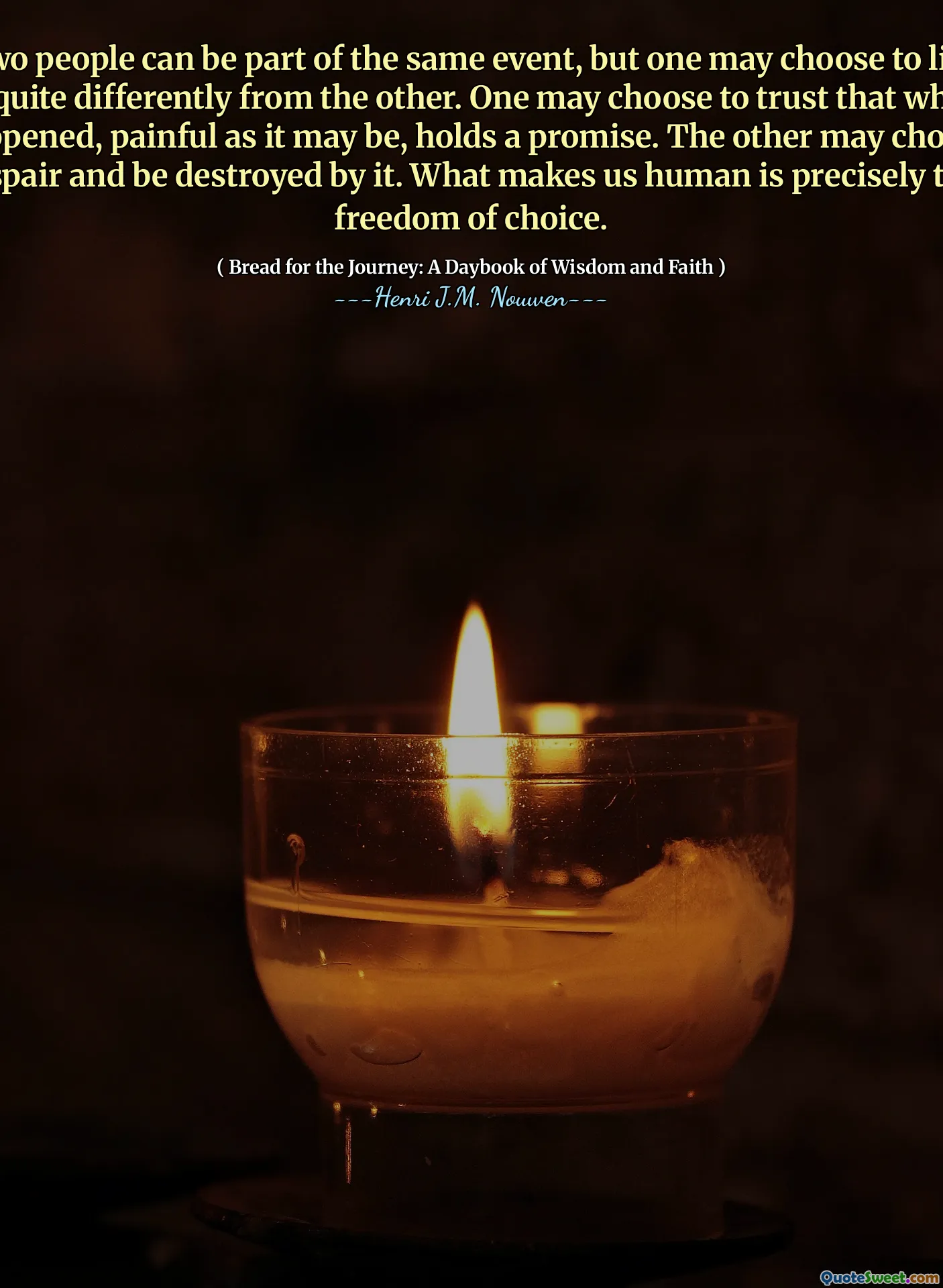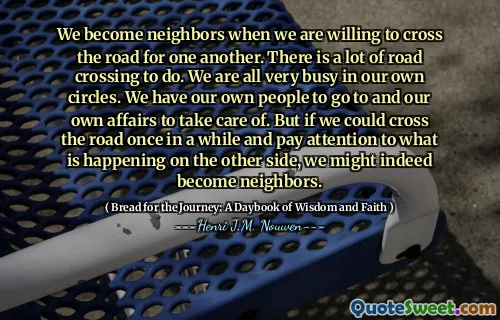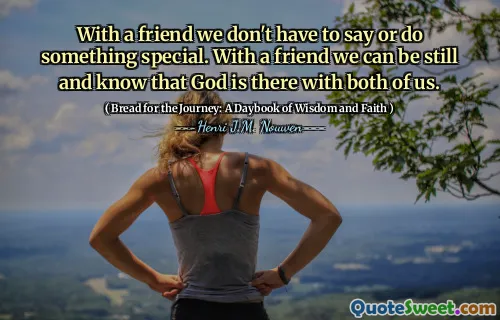
Two people can be part of the same event, but one may choose to live it quite differently from the other. One may choose to trust that what happened, painful as it may be, holds a promise. The other may choose despair and be destroyed by it. What makes us human is precisely this freedom of choice.
This quote eloquently captures the essence of human agency and the profound responsibility we bear for shaping our inner lives amidst external circumstances. It highlights that two individuals can experience the same event, yet interpret and respond to it in fundamentally different ways, emphasizing the subjective nature of human perception and the power of choice. Such a perspective encourages us to recognize that our attitude toward life's challenges determines our inner peace and resilience. Choosing trust and hope, even in the face of pain, allows us to find meaning and growth, transforming suffering into a potential for renewal. Conversely, surrendering to despair can lead to destructive outcomes, robbing us of agency and possibility. The core message underscores that our emotions, beliefs, and reactions are within our control, and that personal growth often hinges on our ability to exercise this freedom judiciously. It reminds us that our responses define our humanity, not the events themselves. In a broader sense, this quote invites reflection on the moral and spiritual capacity each of us holds—the opportunity to foster kindness, understanding, and hope, even when circumstances seem bleak. It affirms our human dignity and encourages intentionality in choosing how we engage with life's hardships, ultimately shaping our destiny and impact on others.








